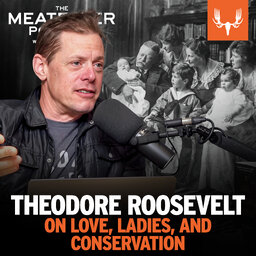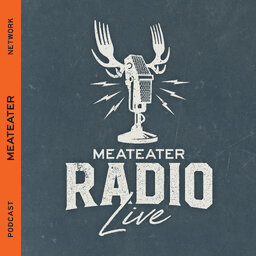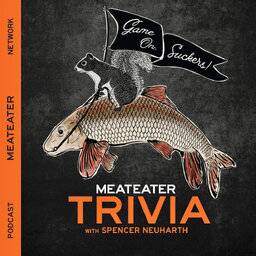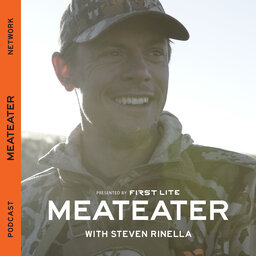Ep. 617: Poppin' Corks
Steven Rinella talks with Janis Putelis, Ryan Callaghan, Clay Newcomb, Brent Reaves, Randall Williams, Corinne Schneider, and Phil Taylor.
Topics discussed: The hardest working states; reciprocity; benefits of in-state residents; hypocritical arguments about fair chase; presidential hopefuls trying to establish their hunting and fishing bona fides; squirting milt; how bull redfish are actually females; Randall catching a huge bull redfish; Cal catching an alligator gar on accident; shrimp bait as just feeding fish; alligator gar as living fossils; cooking stingray; low yield creatures; "on the half shell'; and more.
Connect with Steve and The MeatEater Podcast Network
In 1 playlist(s)
The MeatEater Podcast
Building on the belief that a deeper understanding of the natural world enriches all of our lives, h…Social links
Follow podcast
Recent clips

Ep. 841: Theodore Roosevelt on Love, Ladies, and Conservation
1:48:30

Ep. 840: Polar Bear Jail and an Olympic Cheesemonger | MeatEater Radio Live!
1:19:20

Ep. 839: 2026 MeatEater Trivia Tournament, Round 3
48:25
 The MeatEater Podcast
The MeatEater Podcast